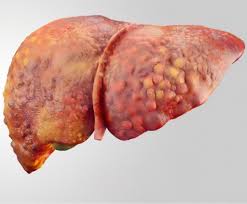
Health Ministry Unveils Revised Guidelines and Training Module for Non-Alcoholic Fatty Liver Disease
In a significant move aimed at bolstering the nation’s response to the growing burden of Non-Alcoholic Fatty Liver Disease (NAFLD), the Union Health Ministry released the revised Operational Guidelines and Training Module for the disease. The newly updated documents are poised to enhance patient care and outcomes through informed, evidence-based practices, underscoring the government’s commitment to combating this emerging public health threat.
Addressing the launch event, Union Health Secretary Apurva Chandra emphasized India’s proactive stance in tackling NAFLD, noting that the country is leading global efforts in recognizing the disease as a major non-communicable disease (NCD). "NAFLD is rapidly emerging as a major public health concern, closely linked with metabolic disorders such as obesity, diabetes, and cardiovascular diseases. Out of every 10 individuals, one to three may be affected by NAFLD, highlighting its significant impact on the population," Chandra stated.
Chandra highlighted that the revised operational guidelines and training modules signify the Health Ministry’s dedication to controlling the disease through a robust framework for healthcare workers at all levels, from community health workers to medical officers. He stressed the importance of providing continuous care for individuals diagnosed with NCDs and emphasized the role of lifestyle modifications in reducing the prevalence of NAFLD.
Punya Salila Srivastava, Officer on Special Duty at the Union Health Ministry, echoed Chandra’s sentiments, stating that the updated guidelines need to reach grassroots-level workers to ensure early detection and reduce the burden of NAFLD. "The release of the training module is a significant addition to India’s efforts in building the capacity of healthcare professionals to tackle the rising burden of NCDs," she remarked.
Dr. S.K. Sarin, Director of the Institute of Liver and Biliary Sciences (ILBS), lauded the initiative as a pivotal step, with potential positive outcomes anticipated in the coming years. He stressed that many NCDs such as diabetes, heart disease, and cancer are intricately linked to liver health, underscoring the importance of maintaining a healthy liver for overall well-being.
NAFLD: A Growing Public Health Challenge
Non-Communicable Diseases (NCDs) account for over 66% of deaths in India, with lifestyle risk factors like tobacco use, alcohol consumption, unhealthy dietary habits, insufficient physical activity, and air pollution contributing significantly to their prevalence. NAFLD is now emerging as a critical cause of liver disease in the country, with community prevalence rates varying from 9% to 32%, depending on age, gender, area of residence, and socioeconomic status. This means that one to three out of every 10 individuals may be affected by fatty liver or related conditions.
Recognizing this growing burden, India became the first country to integrate NAFLD into its National Programme for Prevention and Control of NCDs in 2021. The revised guidelines and training modules address recent evidence-based interventions in the field of NAFLD, equipping healthcare providers with updated knowledge to improve prevention, control, and management strategies.
A Holistic Approach to NAFLD Management
The revised guidelines focus on health promotion and early detection to ensure timely and appropriate care for patients with NAFLD. They advocate for a multidisciplinary approach, integrating the efforts of healthcare providers across various disciplines to offer holistic care for individuals affected by the disease.
The Training Module for NAFLD, developed to complement the operational guidelines, aims to build the capacity of healthcare professionals with the knowledge and skills necessary to identify, manage, and prevent NAFLD, particularly at the primary care level. The module covers a comprehensive range of topics, including epidemiology, risk factors, screening protocols, diagnostic procedures, and standardized treatment guidelines. It also emphasizes the importance of early detection, patient education, lifestyle modification, and integrated care strategies to improve health outcomes.
A Collaborative Effort
The launch event was attended by Shri Jaideep Kumar Mishra, Additional Secretary and Financial Adviser, Health Ministry; Smt. L.S. Changsan, Additional Secretary, Health Ministry; Smt. Latha Ganpathy, Joint Secretary, Health Ministry; and senior officers from the Union Health Ministry. Representatives from all 36 states and Union Territories, development partners, and experts from WHO, ILBS, AIIMS, CMC Vellore, JIPMER, SGPGIMS, PGIMER, and RML Hospital also participated virtually, underscoring the collaborative efforts required to tackle the NAFLD epidemic in India.
As NAFLD continues to pose a serious threat to public health, the revised guidelines and training module represent a comprehensive, evidence-based framework to address its complexities. With these tools, India is poised to make significant strides in reducing the prevalence and impact of NAFLD, safeguarding the health and well-being of its citizens.